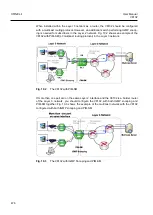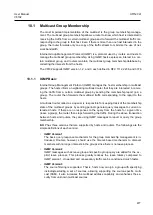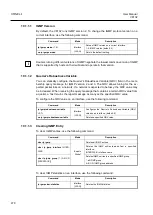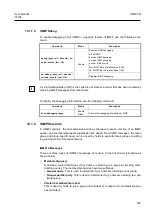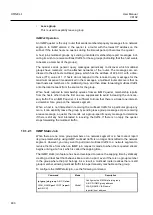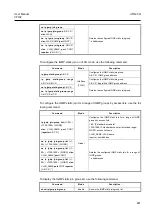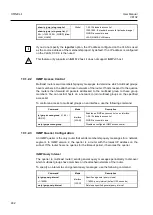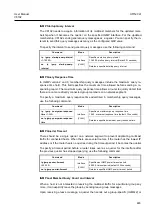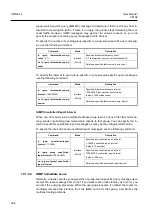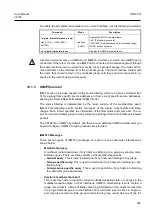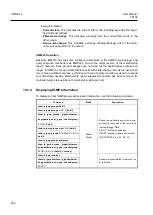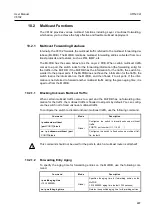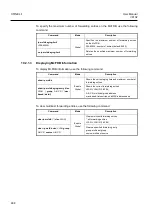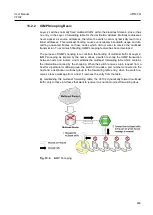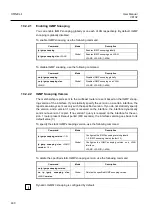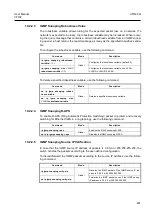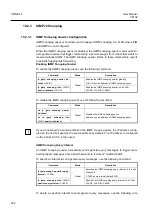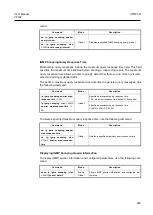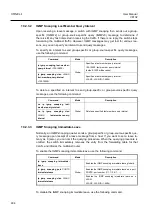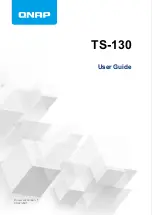
User Manual
UMN:CLI
V8102
479
10.1.1.4
IGMP Debug
To enable debugging of all IGMP or a specific feature of IGMP, use the following com-
mand.
Command
Mode
Description
debug igmp
{
all
|
decode
|
en-
code
|
events
|
fsm
|
tib
}
Enable
Enables IGMP debugging.
all: all IGMP
decode: IGMP decoding
encode: IGMP encoding
events: IGMP events
fsm: IGMP Finite State Machine (FSM)
tib: IGMP Tree Information Base (TIB)
no debug igmp
{
all
|
decode
|
encode
|
events
|
fsm
|
tib
}
Disables IGMP debugging.
Tree Information Base (TIB) is the collection of state at a router that has been created by
receiving IGMP messages from local hosts.
To display the debugging information, use the following command.
Command
Mode
Description
show debugging igmp
Enable
Global
Shows the debugging information of IGMP.
10.1.2
IGMP Version 2
In IGMP version 2, the new extensions such as the leave process, election of an IGMP
querier, and membership report suppression are added. New IGMP messages, the leave
group and group-specific query can be used by hosts to explicitly leave groups, resulting
in great reduction of the leave latency.
IGMPv2 Messages
There are three types of IGMPv2 messages of concern to the host-router interaction as
shown below:
•
Membership query
A multicast router determines if any hosts are listening to a group by sending mem-
bership queries. The membership queries have two subtypes.
–
General query
: This is used to determine if any hosts are listening to any group.
–
Group-specific query
: This is used to determine if any hosts are listening to a par-
ticular group.
•
Version 2 membership report
This is used by hosts to join a group (unsolicited) or to respond to membership que-
ries (solicited).
i












